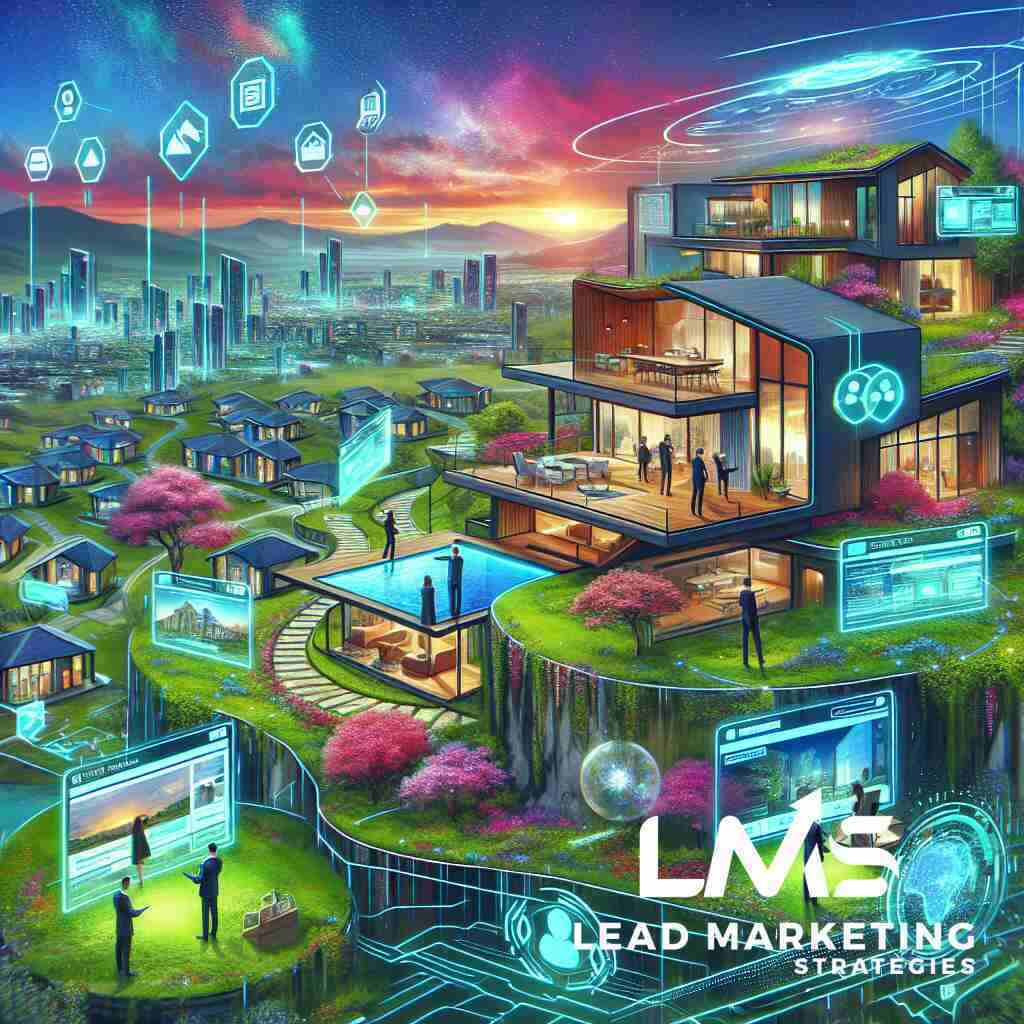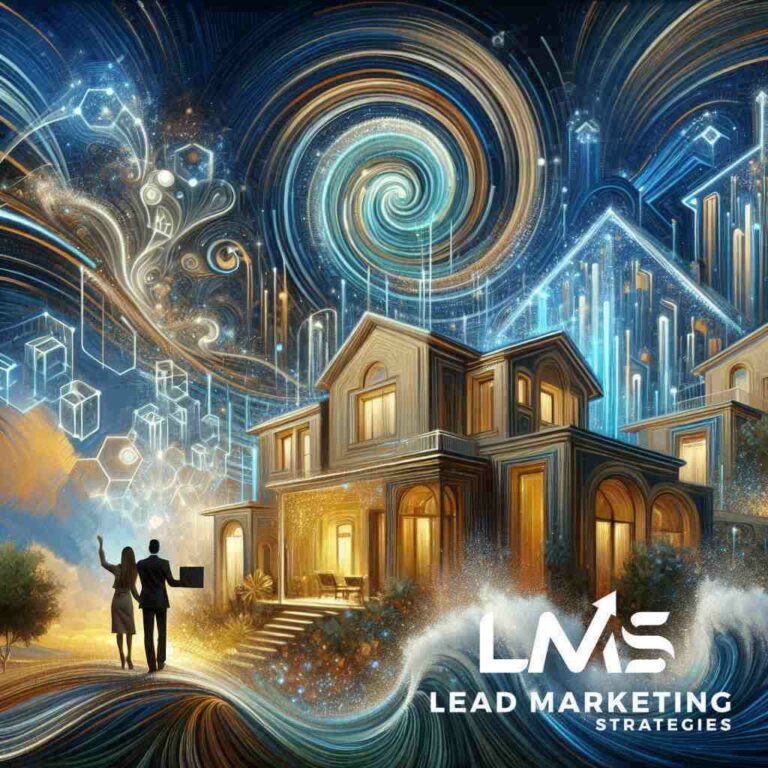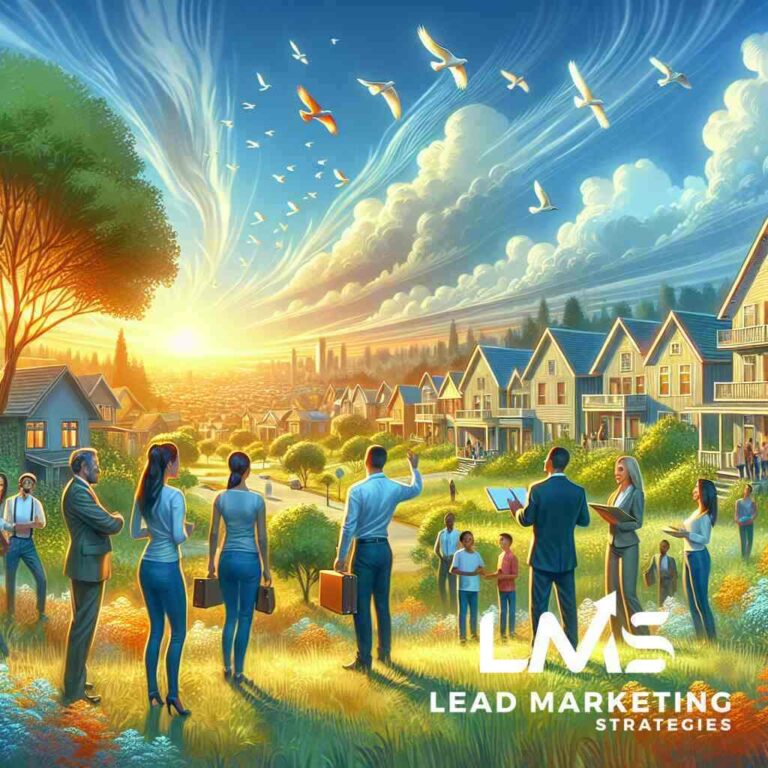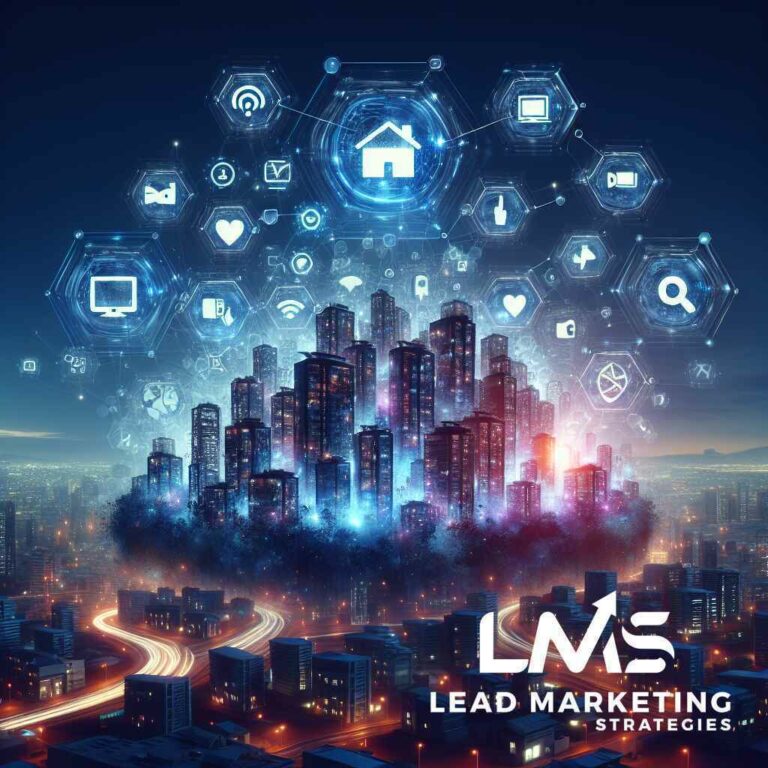Unveiling the Digital Age of Home Buying
The Evolution of Real Estate Marketing
Real estate marketing has undergone a remarkable transformation over the past two decades. Gone are the days when newspapers and physical banners were the primary tools for attracting potential buyers. In today’s digital era, real estate marketing strategies have shifted to the online realm, providing a plethora of platforms to engage with home buyers. This evolution reflects the growing importance of a digital presence and the increasing reliance on visual technologies. Industry experts recognize that digital marketing is no longer optional but essential for any real estate business aiming to succeed in a competitive market.
Digital Trends Transforming Home Purchases
New digital trends are rapidly transforming the way home buyers interact with property markets. These trends include the advent of virtual reality tours and interactive property listings that offer immersive experiences. As the internet became a household staple, so too did the demand for online real estate services increase. Mobile-friendly realty websites have also emerged as integral tools, providing potential buyers with instant access to property information, enhancing convenience and engagement. As these trends evolve, they continue to redefine typical property buying processes, promising more informed, engaged, and satisfied buyers.
The Role of Technology in Home Buyer Engagement
Technology plays a pivotal role in enhancing property buyer engagement. Through advanced software and AI-driven personalization, prospective buyers receive tailored experiences that align with their specific needs. For example, personalized marketing through AI aids in presenting the most relevant properties to potential clients. Additionally, technologies like real estate chatbots and AI enhance customer support, providing instant responses to inquiries and streamlining communications. These technological advancements not only facilitate a more efficient buying process but also ensure a more satisfactory customer experience, ultimately leading to a stronger likelihood of purchase and customer loyalty.
Architecting a Digital Blueprint for Real Estate Success
Crafting Immersive Property Experiences
The art of crafting immersive property experiences is transforming the real estate landscape, offering potential buyers an engaging glimpse of properties from the comfort of their homes. As real estate professionals increasingly turn to digital solutions, these experiences become pivotal in capturing the imagination of prospective clients. Virtual tours and augmented reality are at the forefront, allowing buyers to explore properties in an interactive manner that goes beyond traditional static images. Such advancements not only elevate the buyer’s journey but also empower agents to showcase properties more dynamically, setting the stage for faster conversions and increased interest.
Moreover, the drive to create realistic and all-encompassing experiences aligns well with the needs of today’s digital-savvy home buyers. These immersive property experiences are essential tools that foster stronger emotional connections with properties, pushing beyond mere aesthetics to allow for a profound sense of spatial understanding. As these digital experiences continue to evolve, they promise to blur the lines between virtual and reality, thus enhancing buyer satisfaction and confidence.
Leveraging AI for Personalized Home Buying
In real estate marketing, artificial intelligence (AI) stands out as a game-changing element, driving personalized home buying experiences. Through personalized marketing through AI, realtors can offer tailored recommendations that closely match the unique preferences of potential buyers. By analyzing vast datasets that encompass buyer behavior, preferences, and historical data, AI algorithms can predict what properties are most likely to appeal to specific clients, increasing the likelihood of a sale.
Furthermore, the integration of AI in real estate marketing extends beyond mere property listings. It enables real estate professionals to enhance client interactions, providing real-time assistance and personalized responses. Such sophisticated use of AI helps build trust and rapport with prospective buyers, making the home buying process more enjoyable and effective. As technology progresses, the role of AI in real estate will continue to expand, offering even more sophisticated tools to engage and convert home buyers effectively.
Harnessing Interactive Property Listings
Interactive property listings have emerged as a pivotal component in modern real estate marketing strategies, harnessing technology to foster deeper engagement with potential buyers. By offering features such as 3D walkthroughs, dynamic floor plans, and interactive maps, these listings empower buyers with a comprehensive view of properties before ever setting foot on the premises. This level of detail and interactivity provides clarity and assurance, allowing buyers to explore properties as though they were personally present.
Moreover, leveraging these innovative tools can significantly enhance the visibility of property listings, drawing in a broader audience and increasing the chances of securing interested buyers. As a vital part of property listing digital marketing, these interactive elements become powerful assets in a real estate professional’s toolkit. By merging engagement with innovation, interactive property listings offer an immersive exploration of properties, ensuring that they stand out in a saturated digital marketplace.
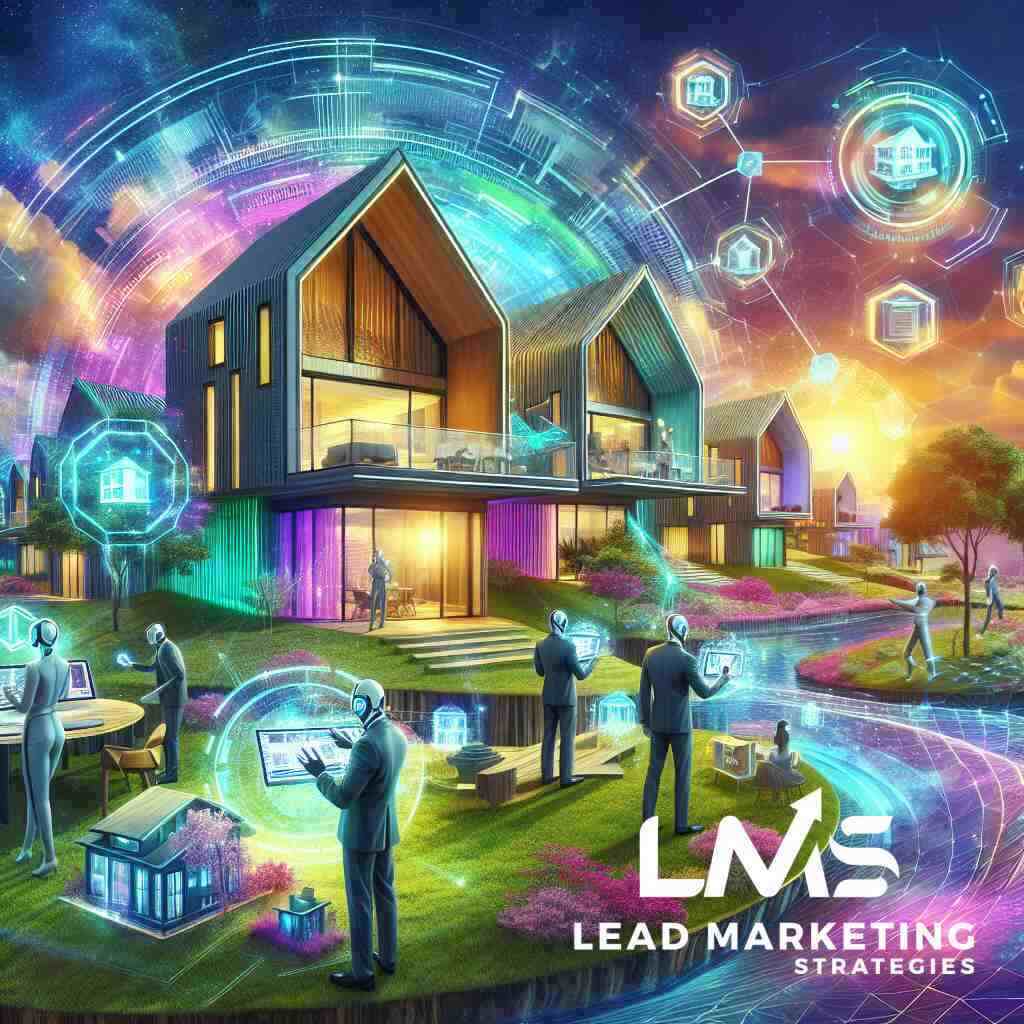
Strategic Pathways to Captivate Modern Home Buyers
Utilizing Virtual Reality to Revolutionize Home Tours
Virtual reality is revolutionizing the traditional open house by offering prospective buyers immersive and engaging experiences. Utilizing virtual reality tours for homes allows buyers to explore properties from remote locations, breaking geographical barriers that previously hindered property exploration. As the demand for convenience increases, real estate professionals must integrate VR into their portfolios to remain competitive. By providing immersive tours, agents can attract a broader audience while reducing time-to-sale, as buyers can make informed decisions rapidly without physical visits.
Furthermore, the use of virtual reality enhances emotional connections between potential buyers and homes. It allows them to visualize their life within the space, helping to create a compelling narrative that traditional methods lack. As consumers lean toward technology-driven solutions, VR becomes a valuable tool in capturing the interest of tech-savvy home buyers, making it an essential digital marketing component for real estate agents.
The Power of Mobile-Friendly Real Estate Experiences
With the rise of smartphone usage, having mobile-friendly realty websites is non-negotiable for real estate professionals. A responsive design ensures that buyers can access property listings and information seamlessly, regardless of the device used. This accessibility fosters an enhanced user experience, crucial for keeping potential buyers engaged and preventing drop-offs during the research phase.
Mobile-friendly websites bring several advantages, including faster loading times and improved navigation, which are instrumental in holding the attention of today’s impatient internet users. Furthermore, these websites often feature integrated tools such as location services and contact forms, streamlining the process for potential buyers to contact real estate agents directly. As the market becomes increasingly digitally focused, mobile optimization becomes a fundamental aspect of effective real estate marketing strategies.
The Influence of Social Media on Property Engagement
In the digital age, social media’s influence in real estate cannot be overstated. Platforms like Instagram and Facebook serve as powerful channels for real estate professionals to showcase properties through visually compelling content. By creating engaging videos, photo galleries, and live tours, agents can reach a vast audience instantly, elevating their brand visibility and property engagement.
Social media also facilitates communication and interaction, enabling potential buyers to inquire about properties and receive instant feedback. The use of targeted advertisements on these platforms allows real estate firms to reach specific demographics, increasing the effectiveness of their outreach efforts. As social media continues to evolve, embracing its potential in marketing strategies becomes pivotal for property managers and real estate agents looking to maximize their digital presence.
Targeted Digital Outreach to Local Real Estate Markets
Localizing digital marketing efforts through targeted local real estate marketing is crucial in appealing to nearby home shoppers and investors. By focusing on local SEO and community-specific content, real estate agents can attract buyers seeking properties in particular neighborhoods. Tailoring marketing strategies to fit local market characteristics enhances relevance and appeal, leading to higher engagement rates and better conversion.
Such targeted efforts include leveraging geographic data analytics to customize content and advertisements, ensuring they align with local trends and buyer preferences. Moreover, the use of local keywords and neighborhood highlights positions agents as experts in their area, establishing trust among potential clients. By tapping into the local market through strategic digital marketing, real estate professionals can significantly boost their visibility and success in closing transactions.
Driving Innovation with Data and Analytics in Real Estate
Data-Driven Insights for Improved Buyer Engagement
The integration of data analytics in real estate marketing strategies is redefining how realtors engage with potential buyers. By harnessing data analytics in real estate, professionals can gain a comprehensive understanding of market trends, buyer behavior, and property preferences. This insight allows for the development of targeted strategies that appeal directly to buyer interests, ultimately increasing engagement and closing rates. Implementing data-driven strategies offers REALTORS the tools to forecast market shifts, adjust listings accordingly, and maintain a competitive edge in an ever-evolving market landscape.
Advanced analytics enables real estate firms to track user interactions on their websites, leveraging this data to optimize user experience and subsequently reach their customer engagement objectives. Real-time analytics empowers agents to tailor their communication strategies, thereby providing personalized assistance and recommending the most relevant properties to prospective buyers. These tailored interactions not only enhance client relationships but also bolster the agent’s role as a trusted advisor, ensuring a seamless and satisfying home-buying journey.
Property Video Storytelling and Narrative Techniques
In an age where engagement is pivotal, video storytelling for properties offers a revolutionary approach to capturing buyer attention. Video marketing enables real estate professionals to craft compelling narratives that highlight a property’s unique features, lifestyle benefits, and community appeal. This technique transcends conventional marketing, allowing for emotional connections that resonate with viewers and leave lasting impressions.
Videos offer dynamic and immersive storytelling experiences that static images or printed brochures simply cannot provide. By leveraging high-quality visuals, drone footage, and engaging scripts, real estate agents can differentiate their listings and appeal to a broader audience. Such innovative strategies not only captivate potential buyers but also significantly enhance property visibility in overcrowded digital marketplaces. As digital content continues to dominate marketing, investing in video narratives becomes a crucial component of effective real estate marketing services to ensure properties stand out.
Optimizing the Buyer Journey with Dynamic Advertisements
As the digital landscape constantly evolves, the optimization of the buyer’s journey through innovative real estate advertisement techniques remains essential for successful real estate marketing. Dynamic advertisements personalize the home buying experience by adapting content based on user interactions and preferences. This personalized approach ensures that buyers receive content that aligns with their needs, enhancing their decision-making process. Dynamic ads utilize algorithms and extensive analytics to tailor property listings, highlighting features most appealing to specific buyer personas. Through strategic targeting and retargeting, these advertisements ensure potential buyers remain engaged at every stage of their journey-from initial discovery to final decision. By incorporating this technique, real estate agents can reduce friction, nurture leads efficiently, and increase the likelihood of conversions, ultimately driving growth and establishing a robust online presence.
Incorporating dynamic elements in advertisements reinforces the efficacy of content marketing for home sales, capturing attention in a saturated digital space. By combining these innovative advertising techniques with comprehensive real estate chatbots and AI, professionals can elevate client interactions, setting the stage for elevated engagement and higher conversion rates.
Building a Sustainable Future in Real Estate Marketing
Embracing Eco-Friendly Advertising Strategies
In today’s environmentally conscious market, adopting eco-friendly real estate marketing strategies becomes a necessity rather than a choice. By incorporating green practices into advertising, real estate firms can appeal to a growing base of eco-aware buyers. These strategies might include highlighting sustainable features in properties, such as energy-efficient appliances, solar panels, and environmentally friendly materials.
Linking these attributes with digital marketing campaigns ensures that potential buyers see the tangible benefits of investing in an eco-conscious home. Leveraging platforms like SEO for property listings can help pinpoint environmentally focused buyers by tailoring content that resonates with their values. Such targeted techniques not only enhance the market appeal but also showcase a commitment to sustainability, positioning the brand as a responsible market leader.
Community-Centered Real Estate Promotions
Promoting real estate within the context of its community not only boosts engagement but also highlights the unique charm and lifestyle offered by the area. Community-centered marketing involves emphasizing local amenities, schools, parks, and cultural landmarks in your property listings. This approach provides a richer narrative that speaks to the buyer’s desire for a sense of belonging and community.
By focusing on developing compelling stories about properties and their neighborhoods, realtors can foster stronger emotional connections with potential buyers. Leveraging web design for real estate can amplify these narratives by integrating community-driven content and visuals into property websites. This integrated approach reinforces the appeal, making listings more attractive to those who prioritize community in their home-buying decisions.
Engaging Buyers through Influencer Partnerships
Incorporating influencer partnerships on realty sales into marketing strategies opens up new avenues for reaching modern home buyers effectively. By collaborating with influencers, real estate firms can tap into extensive networks and influencer expertise in engaging content creation. These partnerships present properties in a relatable and trustworthy light, thereby bridging traditional marketing gaps.
Influencers can showcase homes in lifestyle-driven content through their unique storytelling techniques, appealing directly to their dedicated followers. Aligning with influencers whose values match the brand’s vision ensures consistency and authenticity in messaging. This strategy not only enhances property visibility but also positions the brand as innovative and in tune with current marketing trends, creating a robust platform for extensive buyer engagement.
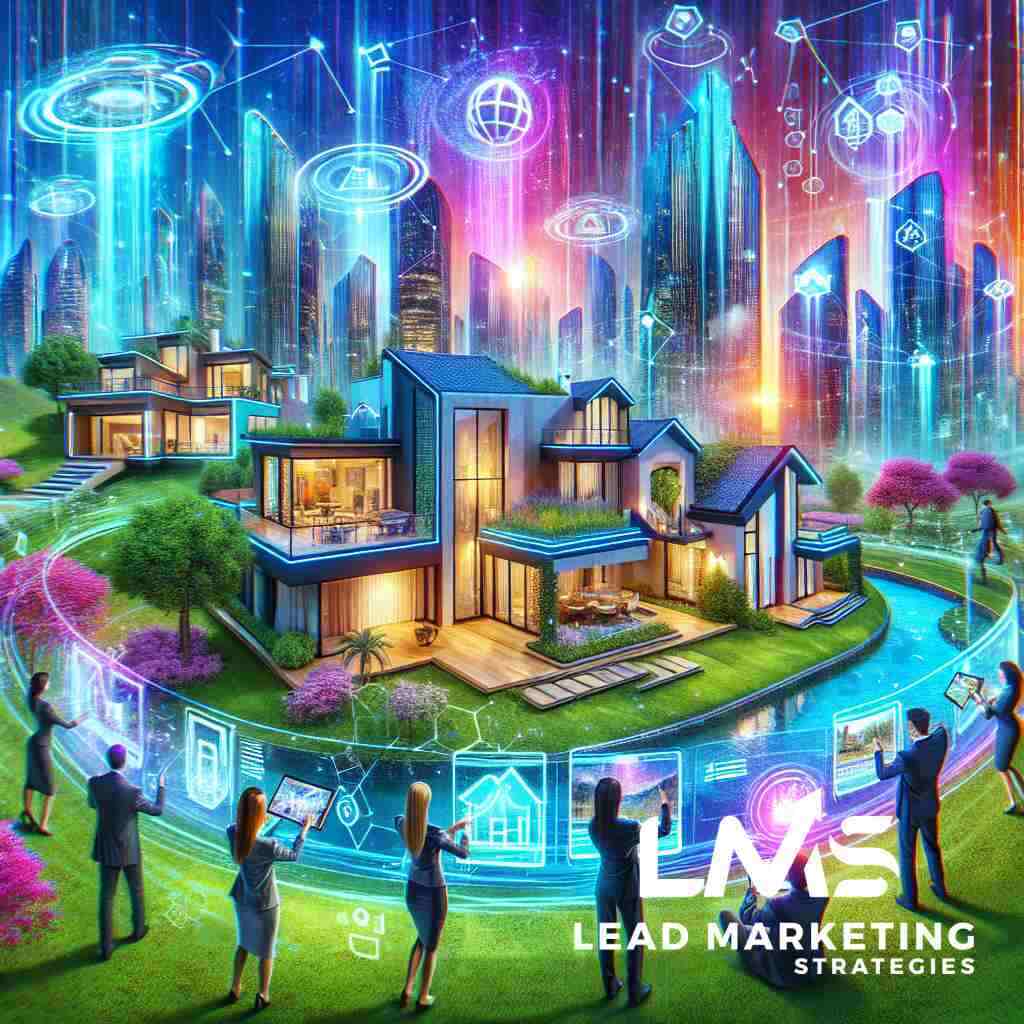
Conclusion
Reflections on the Future of Digital Real Estate Marketing
The digital transformation of real estate marketing is undoubtedly heading towards a future that seamlessly integrates technology and creativity. As new platforms emerge and consumer behavior adapts, real estate agents and firms must remain agile, continually evolving their digital marketing services for realtors to meet changing demands. This evolution demands a robust understanding of digital landscapes and a commitment to integrating advanced technologies into marketing strategies. Companies that can harness these tools effectively will cultivate deeper connections with potential buyers, presenting properties in innovative ways that resonate on a personal level.
Synthesizing Innovation with Traditional Marketing Techniques
Even in an increasingly digital world, traditional marketing methods retain their relevance, offering a reassuring familiarity to certain clientele. However, synthesizing these tried-and-true techniques with innovative approaches like virtual tours and AI-driven personalization creates a comprehensive marketing strategy that appeals to both technologically savvy buyers and those who appreciate traditional advertising. Combining methods allows for a more holistic approach to customer engagement, capitalizing on each technique’s strengths to maximize outreach and impact. Strategizing around this synthesis will poise real estate professionals to capture a broad spectrum of potential clients.
Empowering Home Buyers through Technological Advancements
As the role of technology intensifies in our daily lives, empowering home buyers through technological advancements becomes crucial. Automation and AI technologies are pivotal in personalizing the buying experience, simplifying the decision-making process, and catering to individual buyer needs. Technologies like virtual reality, AI personalization, and detailed data analytics ensure that potential buyers are well-informed and visually immersed in their options before making a purchase. By leveraging these tools, real estate professionals not only enhance the buying experience but also build trust and credibility with their clients, paving the way for successful transactions. Embracing these advancements ensures that agents and firms not only meet but exceed buyer expectations.
Frequently Asked Questions
Question: How do Real Estate Marketing Strategies leverage AI in real estate marketing to enhance home buyer engagement?
Answer: AI in real estate marketing is a transformative tool for enhancing home buyer engagement. At Real Estate Marketing Strategies, we utilize sophisticated AI algorithms to analyze extensive datasets, including buyer behavior and preferences, to deliver personalized home buying experiences. Our AI-driven personalization means that prospective buyers are presented with property listings that are most relevant to their needs, significantly increasing the likelihood of a sale. By integrating AI with real estate chatbots and real-time response systems, we ensure seamless and effective communication, which builds trust and rapport with clients throughout their home-buying journey. Check out How to Elevate Property Listings with Real Estate AI?
Question: What role do interactive property listings play in your digital marketing strategies for real estate?
Answer: Interactive property listings are a core component of our digital marketing strategies. They allow potential buyers to explore properties through immersive experiences like 3D walkthroughs and dynamic floor plans. At Real Estate Marketing Strategies, we believe these tools are crucial for enhancing buyer engagement by providing a detailed and interactive view of properties. This approach not only increases buyer assurance but also improves the visibility and appeal of listings in a competitive digital market. By incorporating interactive elements, we ensure that property listings stand out and attract a broader audience.
Question: How does the blog post ‘Top Digital Marketing Techniques to Engage Home Buyers’ reflect the Real Estate Marketing Strategies’ approach to utilizing digital tools?
Answer: The blog post ‘Top Digital Marketing Techniques to Engage Home Buyers’ captures the essence of our approach by highlighting the crucial role of technology and creativity in marketing real estate effectively. Look into the Ultimate Guide to Social Media Impact on Realty Profits. At Real Estate Marketing Strategies, we focus on using cutting-edge digital tools like virtual reality home tours, AI-driven personalization, and mobile-friendly realtor websites to revolutionize the home buying process. Our comprehensive digital marketing strategies leverage these tools to create compelling narratives around properties, optimize buyer journeys, and engage home buyers in innovative ways. This integration of advanced technologies ensures that we meet and exceed the expectations of tech-savvy home buyers.
Question: What impact does social media have on property marketing according to Real Estate Marketing Strategies?
Answer: Social media plays an influential role in property marketing by amplifying brand visibility and engagement. At Real Estate Marketing Strategies, we harness platforms like Instagram and Facebook to showcase properties with visually compelling content such as videos, photo galleries, and live tours. Learn more about Exploring Social Media’s Role in Real Estate Marketing. Social media allows us to reach a vast audience instantly while targeting specific demographics through tailored advertisements. This approach not only boosts property engagement but also facilitates instant communication, enhancing interactions with potential buyers. By staying at the forefront of social media influence, we ensure that our real estate marketing services resonate with modern buyers and deliver effective results.
Question: Can you explain how Real Estate Marketing Strategies incorporates eco-friendly real estate marketing techniques in its services?
Answer: Embracing eco-friendly real estate marketing is part of our commitment to sustainability and meeting the needs of environmentally conscious buyers. At Real Estate Marketing Strategies, we highlight green features in properties, such as energy-efficient appliances and sustainable materials, across digital marketing campaigns. By aligning our messages with the values of eco-aware buyers, we enhance the market appeal and demonstrate our dedication to responsible practices. Using SEO for property listing digital marketing, we target environmentally focused buyers by creating content that resonates with their preferences, which positions our clients as leaders in sustainable real estate.
